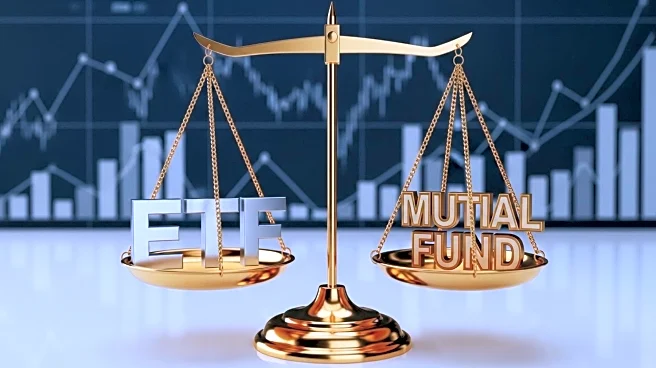What's Happening?
Investors often choose between mutual funds and exchange-traded funds (ETFs) for portfolio diversification. While both are managed baskets of assets, they differ in trading mechanisms, tax efficiency, and cost. ETFs trade like stocks on exchanges, offering real-time pricing, whereas mutual funds transact directly with the fund, with prices set at day's end. ETFs are generally more tax-efficient, avoiding capital gains taxes that mutual funds incur. Additionally, ETFs tend to have lower fees, making them a cost-effective option for investors.
Why It's Important?
Understanding the differences between ETFs and mutual funds is crucial for investors seeking to optimize their portfolios. ETFs offer advantages in tax efficiency and lower fees, which can lead to significant savings over time. However, mutual funds may provide access to a broader range of investment strategies. Investors must consider their financial goals, tax implications, and cost structures when choosing between these options. The growing popularity of ETFs reflects a shift towards more cost-effective and tax-efficient investment vehicles.
Beyond the Headlines
The rise of ETFs has prompted mutual fund managers to launch ETF versions of their strategies, indicating a trend towards convergence in the investment industry. This shift may lead to increased competition and innovation, benefiting investors with more choices and potentially lower costs. The tax advantages of ETFs highlight the importance of tax planning in investment decisions, especially for those holding assets in taxable accounts.












